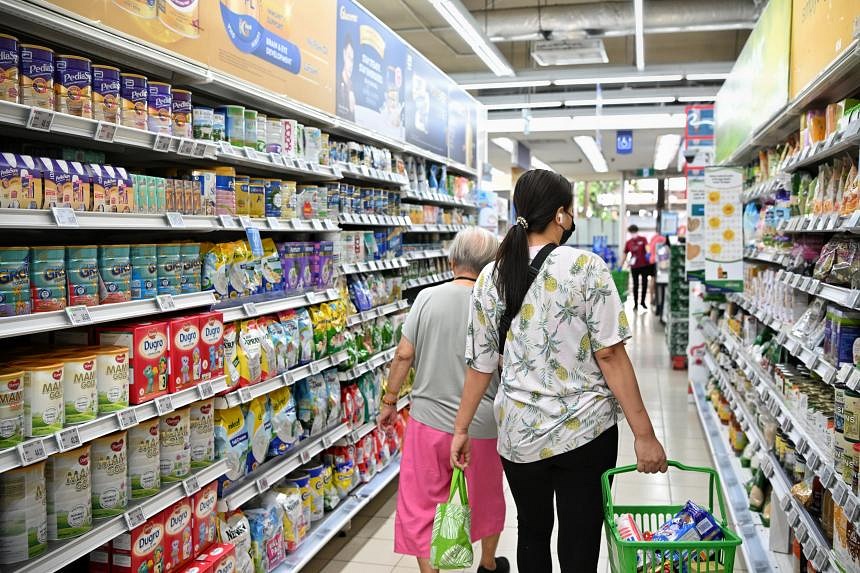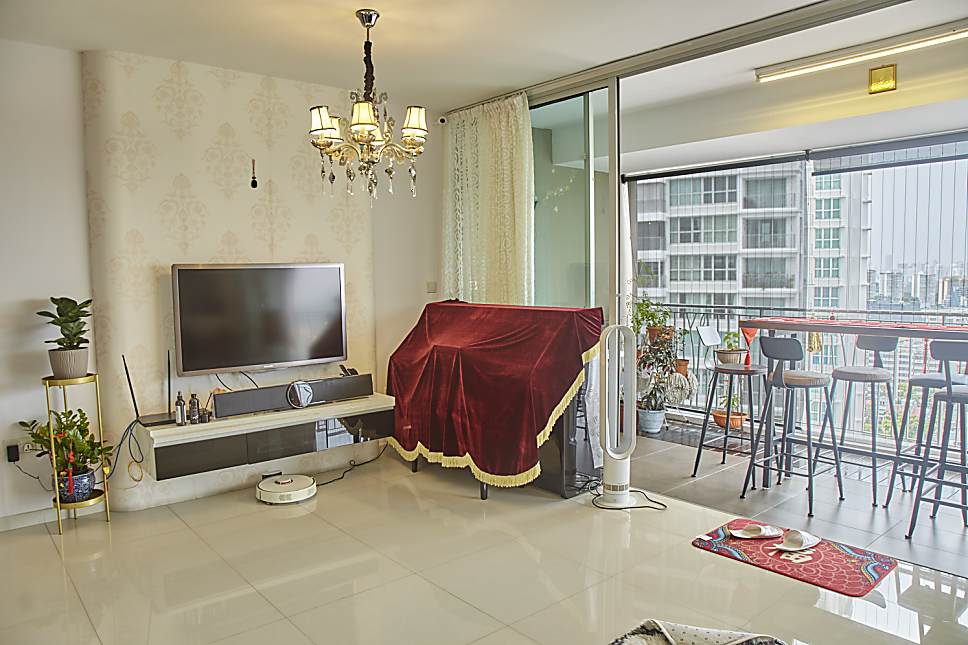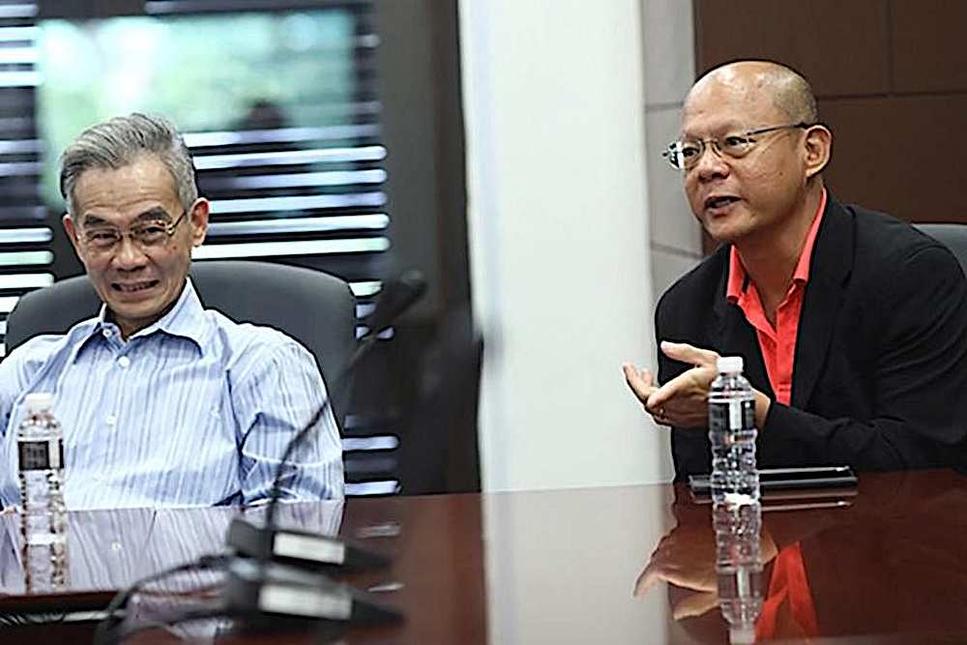Can we rely on foreign maids alone for eldercare?
Many options, suiting different budgets, have sprung up to help families care for the elderly.

Singapore is an ageing society and visually that hits you in the face. In the evenings, it is not unusual to see white-haired seniors in wheelchairs at the void decks of HDB blocks and open spaces. Their companions are quite often migrant domestic workers (MDWs), looking bored and talking loudly on their mobile phones.
Visiting hospitals? Go at the wrong time, and it might be faster to take the stairs or the escalators. Corridors and lifts are often jam-packed with seniors in their wheelchairs accompanied by helpers.
The statistics make for scary reading. By 2026, Singapore will be a “super-aged” society, with 21 per cent of the population aged 65 and above. By 2030, this proportion will rise to about one in four Singaporeans.
By then, an estimated 83,000 seniors will live alone, and about 100,000 seniors will require assistance with at least one activity of daily living, such as bathing, walking or eating, according to the Ministry of Health (MOH).
Life without a helper
This is where our trusty helpers, who assist many of these seniors, come in. What would we do without them? There were around 268,500 MDWs in December 2022, the highest in at least five years. In 2021, this number was 246,300. The rise is probably due to pent-up demand from households that found it challenging to get a new maid during the period of Covid-19 restrictions.
With 1.399 million households, roughly every one in five has a helper.
As someone who is reliant on a helper for caregiving, the prospect of managing a household without one is downright terrifying. How to be in two places at one time – going for hospital check-ups, for example, and holding down a full-time job – without taking too much leave and riling the boss? How is one to find the time and energy to be a competent employee, excel at looking after the home and still minister to the elderly? Something has to give.
But it’s a prospect we may have to confront soon. Domestic workers can earn a good salary in the Middle East and Hong Kong.
Healthcare workers, whom we also need to take care of seniors, can command even higher salaries. Not only that, those skills give them a better shot at gaining residency overseas. I know of a helper’s daughter who could be contributing to the family’s finances immediately if she too became a helper, but if they scrimp and save until she gets a healthcare qualification, their long-term economic prospects would improve significantly.
We should not assume that our supply of domestic workers will continue indefinitely. These workers come from countries that are getting wealthier and where domestic demand for helpers will grow in tandem. Equally, hiring them may get much more expensive – from added training costs, for example, or immigration fees and other paperwork – and this will reduce demand. Other factors can also queer the pitch. Just recently, there were delays in the flow of Indonesian domestic workers to Singapore, due to worries over human trafficking.
Eldercare options
Meanwhile, eldercare options have expanded considerably in recent years and employing a domestic worker is just one of them.
There is also the traditional option of nursing homes. For those who are physically or mentally disabled because of illness; semi-mobile, using a wheelchair, bedbound or in need of help with activities like going to the toilet or walking, the nursing home remains one avenue.
According to the Agency for Integrated Care’s website, basic costs range from $2,200 to $4,200 per month for a bed in a nursing home (before subsidies), depending on the level of care required. However, families have to be aware of additional charges such as a one-time refundable deposit and administrative fees. Ongoing extras, such as milk supplements and adult diapers, also have to be factored in.
Even these residential options have gone upmarket. For those who want a more comfortable abode, Allium Healthcare has entered the market, offering spacious, well-designed rooms next to greenery. It offers a whole host of therapeutic services, with a tab in the ballpark of $7,000 a month.
Meanwhile, those who wish to continue living at home can turn to daycare. NTUC Health is one of the largest players and offers senior daycare at its centres. Participants get to enjoy arts and crafts and games, as well as exercises including stretching and strengthening activities. Trained staff are around to support the activities of daily living.
Meals are provided and transportation can be arranged for those who live within 5km of the centre. Fees range from $1,100 to $1,600 a month, before government subsidies, according to the website.
Flexible daycare alternatives have also sprung up. NTUC Health has daycare alternatives for Sundays when domestic workers have their day off. There are also options available to caregivers who need a break for just a few hours.
Then for those who are relatively mobile and wish to live independently, there are the HDB community care apartments with senior-friendly features and care services. Following the strong response to such projects in Queenstown and Bukit Batok, it’s expected that the launch in Bedok later this year will be popular too.
The private sector is also getting in on the act. Developer Perennial, which runs similar facilities in China, recently secured a tender to build an assisted-living project in Parry Avenue. The plans are for 200 assisted-living apartments, a 100-bed nursing home, a wellness clubhouse, a geriatric care centre and a new 1.5ha community park.
Perennial is the largest shareholder of Renshoutang, which operates in China, focusing mainly on Shanghai. Its model integrates medical and nursing care as well as rehabilitation, dementia and eldercare. It has brands for the mass market, more affluent customers and the premier segment.
All in all, MOH has significantly expanded Singapore’s aged care capacity. Since 2015, 4,800 daycare places, and 4,800 home care places have been added, to provide a total of 8,300 daycare places and 11,700 home medical and nursing-care places as at end-2021.

Human touch
While the physical infrastructure is all-important, what is hard to get right are the softer skills behind caregiving. For caregiving to succeed, the human touch is essential, even if places like Japan use robot dogs to replicate human interaction.
This was one reason why a recent report in The Straits Times on social enterprise Red Crowns Senior Living caught my eye. It is being probed by the Ministry of Manpower (MOM) for potentially flouting the Employment of Foreign Manpower Act.
Red Crowns operates a model of assisted co-living, where four seniors live in a rented apartment. They are cared for by two migrant domestic workers which gives a ratio of two residents per worker.
What I found interesting in this set-up was that the staff to resident ratio was higher than in a conventional nursing home. There also seemed to be mental health benefits in that the domestic workers could support each other if the seniors were having a bad day. Conversely, there is less potential for the abuse of the seniors as there are simply more people around, unlike a home setting. The cost, which starts at around $2,900 a month, appears lower or comparable to what a nursing home might charge.
Notwithstanding these advantages, the arrangement is not without its problems.
On paper, the employer of the foreign domestic worker is the senior or their family. By law, they are therefore the ones responsible for the worker’s food, safety, medical care, job scope, accommodation and rest arrangements. But in this case, it is the operator who handles these aspects. The arrangement raises questions of responsibility and control over the worker, which becomes critical when things go wrong or if corners are cut.
If one of the domestic workers has an accident, would the insurance cover the helper, asks Ms Magdalene Low, founder of My Employment Agency which specialises in MDWs.
MOM said in a letter to The Straits Times’ Forum page that “employers are still liable if their MDWs were deployed to another household to work, sustained an injury, or were not provided sufficient food or rest. Employers who knowingly employed the MDWs but left Red Crowns to manage them may have been led to contravene the law”.
It added that “by hiring MDWs illegally to provide caregiving services, Red Crowns circumvented the foreign worker quota policy and enjoyed lower levy rates. MDWs are strictly allowed to be employed only by individuals”.
Encouraging innovation
As Singaporeans age, depending on their health needs, a diverse range of options may be needed. Given our manpower and land constraints – land is scarce and expensive – when innovative options come our way, we should respond fast.
“It is worth reiterating that older adults are not a homogenous population but have different abilities and needs that are changing with age,” notes Dr Belinda Yuen, who is a professorial fellow and research director at the Lee Kuan Yew Centre for Innovative Cities, Singapore University of Technology and Design.
Given Singapore’s rapidly ageing population, it is worthwhile to continually review housing options for them from all aspects, she says.
Already there is the Ministerial Committee on Ageing which ensures that multiple government agencies are able to produce a holistic response to the ageing society.
The Government “is supportive of private sector innovation of shared caregiving models that offer options for the elderly to age in community”, said MOM in its Forum letter. It added that “these models must comply with the law. If there are innovative models that require a review of existing rules, the Government is prepared to work with companies on these models to better support the elderly”.
In fact, on the domestic worker front, some flexibility and innovation have been seen. Earlier this year, MOM began piloting the Household Services Scheme (HSS) with selected companies. These companies employ migrant workers to provide basic child-minding and elder-minding services, to give households more options.
The scheme gives families an extra pair of hands when it is needed and will cost less if the elderly person does not yet need a full-time live-in caregiver. What’s more, as the migrant worker is clearly employed by the company, there is no confusion on that count.
Workers from these companies can be deployed to multiple houses on a part-time basis to provide select household services. They also do not live in the homes that they work at.
Helpling Care is a home care services tech platform that provides caregivers to families across Singapore. With its pool of caregivers from the HSS, Helpling hopes to fill the gap between caregiving supply and its increasing demand, noting that this “ad-hoc caregiving services by foreign domestic workers... is already a very big step in the right direction compared to the tighter labour regulations in other ageing countries like Germany or Japan. We see some seniors in Germany, for example, migrating to other countries to retire, simply because there is a higher availability of caregiving services”.
Even as we aim for a healthier Singapore so that we can age in place, we cannot escape the fact that caregiving needs will escalate as we age. We cannot always depend on maids and will need to be open to innovative eldercare options, within legal boundaries of course.
Join ST's Telegram channel and get the latest breaking news delivered to you.







No comments:
Post a Comment